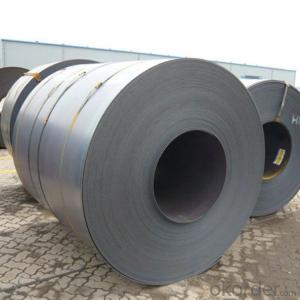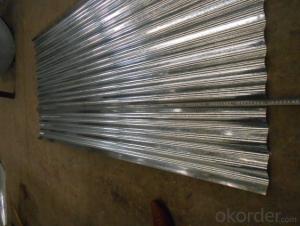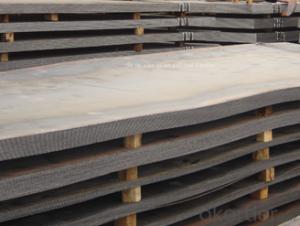Hot Rolled Steel Sheets SS400 Good Quanlity
- Loading Port:
- Tianjin
- Payment Terms:
- TT OR LC
- Min Order Qty:
- 50 m.t.
- Supply Capability:
- 100000 m.t./month
OKorder Service Pledge
OKorder Financial Service
You Might Also Like
Item specifice
DESCRIPTION:
GRADE: SS400, ASTM A36, A572, ST37,ST52, Q195, Q215, Q235,Q345, S235JR etc.
STANDARD: GB/T709-2006, ASTM A36, JIS G3101, DIN EN 10025, SAE 1045, ASTM A570
SPEC: 1)Width: 600-2500mm or 1000,1050,1250,1500,1800,2000mm
2)Thickness:1.5mm-200mm or as customers’ special requirements;
3)Length: 2-12m or as customers’ special requirements
PACKING:
1.Big thickness:by bulk vessel
2.Small thickness:packed by steel strips and shipped by container
3.According to the requirements of customers'
TRADE TERMS :FOB, CFR, CIF
DETAILED PICTURES FOR STEEL COILS
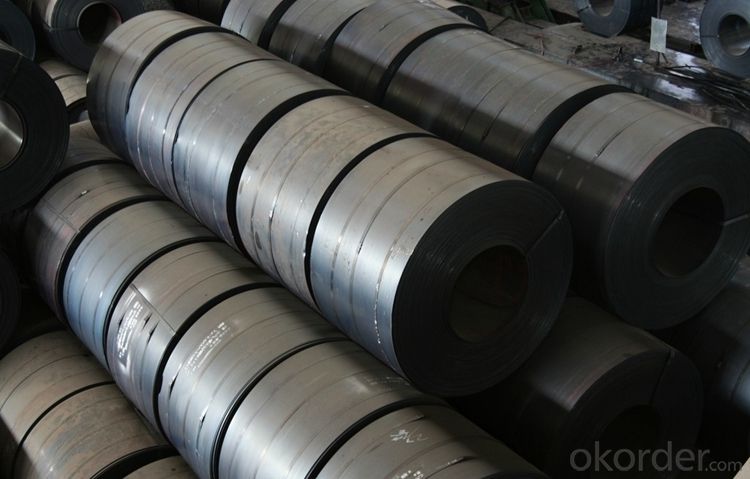
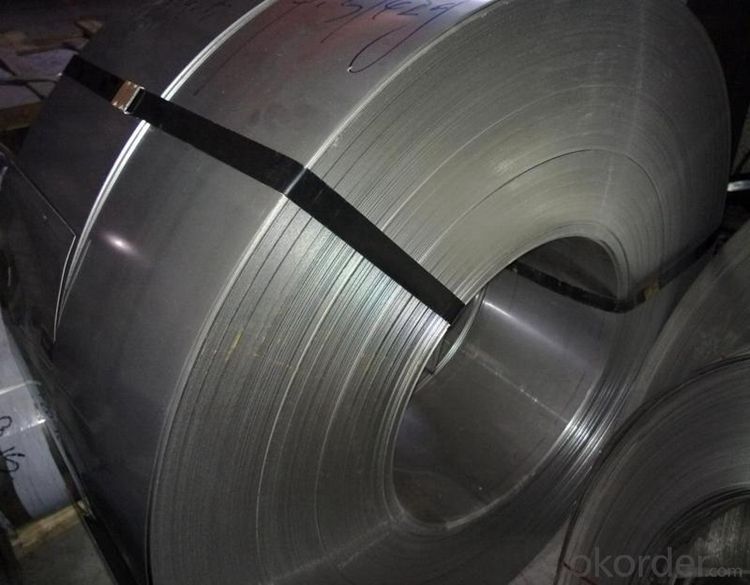
EXPORT MARKET FOR STEEL COILS/SHEETS
Our target market is the international market. Every year we export most of products to countries like India, Pakistan, South Korea, Brazil, Australia, South Africa, Spain, Sri Lanka, Taiwan, Hong Kong, etc.
OUR SERVICE
1.High quanlity and reasonable price.
2.Customized on-demand.
3.Reasonable shipping and fast delivery.
4.Free sample.
FAQ
Q:How to order?
A: Please send us your purchase order by email or fax .or you can ask us to send you a proforma invoice for your order .We need to know the following information for your order.
1) Shipping information-company name, street address, phone number, fax number, destination sea port
2) Product information – Quantity, Specification (steel type, thickness, width, surface finish)
3) Delivery time required
4) Forwarder's contact details if there's any in China
FAQ
Q:What are the advantages of your company ?
A: We have many professionals, technical personnel, more competitive prices and best after-dales service than other steel companies.
Q:Can you arrange the shipment ?
A: Sure we can help you with the shipment. We have forwarders who have cooperated with us for many years.
- Q:Are steel sheets suitable for agricultural machinery?
- Yes, steel sheets are suitable for agricultural machinery due to their durability, strength, and ability to withstand harsh conditions commonly encountered in farming operations.
- Q:Can steel sheets be used for electrical motors?
- Indeed, electrical motors can utilize steel sheets. Due to its magnetic properties, steel is frequently employed in the construction of these motors. Specifically, the sheets of steel are typically utilized to form the motor's core, which is responsible for generating the essential magnetic field. With its high magnetic permeability, steel can effortlessly conduct and direct magnetic flux, rendering it an optimal material for this purpose. Moreover, steel is durable and capable of withstanding the elevated temperatures and mechanical pressures that electrical motors may encounter while in operation. Consequently, steel sheets are frequently selected as a dependable and economical choice for constructing electrical motors.
- Q:What are the different joining methods for steel sheets?
- There exist several methods for joining steel sheets, each with its own benefits and applications. 1. Welding, a widely used method, involves melting and fusing the sheet edges together with heat. Various welding techniques, such as arc, MIG, TIG, and spot welding, are available. Welding ensures robust and durable joints but demands skilled operators and can be time-consuming. 2. Bolting, another method, employs bolts or screws to connect steel sheets. This method is commonly preferred when disassembly or maintenance is necessary. Bolting guarantees strong and reliable joints, and it is relatively simple and quick. However, it may involve drilling holes and result in a less visually appealing appearance compared to welding. 3. Riveting, a method utilizing metal pins or rivets, effectively joins steel sheets. Rivets are inserted through pre-drilled holes and then deformed or expanded to secure them in place. Riveting ensures strong and secure joints, commonly used in applications requiring high shear strength. Nevertheless, it can be time-consuming and necessitates specialized tools and skills. 4. Adhesive bonding involves using specialized adhesives or bonding agents to join steel sheets. The adhesive is applied between the sheets and forms a strong bond as it cures. Adhesive bonding provides excellent aesthetics, leaving no visible joints, and evenly distributes stress across the joint. It finds common use in industries where welding or other methods are unsuitable, such as automotive and aerospace sectors. 5. Clinching utilizes mechanical force to join steel sheets. It entails deforming the sheet edges to interlock them and create a strong joint. Clinching is cost-effective as it does not require additional materials like fasteners or adhesives. However, it may not be suitable for applications requiring high load-bearing capacity. Ultimately, the choice of joining method for steel sheets depends on factors such as the application, desired strength, aesthetics, time constraints, and cost considerations. Each method possesses its own advantages and limitations, necessitating the selection of the most appropriate method for the specific project requirements.
- Q:Can steel sheets be used in electronics applications?
- Yes, steel sheets can be used in electronics applications. Steel sheets are commonly used as shielding materials in electronic devices to protect against electromagnetic interference (EMI). They can also be used as structural components in electronic enclosures, cabinets, and racks to provide mechanical strength and durability.
- Q:How do steel sheets perform in high-pressure environments?
- Steel sheets perform well in high-pressure environments due to their high strength and resistance to deformation. They can withstand the forces exerted by high-pressure gases or liquids without significant distortion or failure.
- Q:What are the different surface treatments for steel sheets?
- There are several different surface treatments available for steel sheets, each serving a specific purpose and providing unique benefits. Some of the common surface treatments for steel sheets include: 1. Hot-dip galvanizing: This process involves immersing the steel sheet in a bath of molten zinc, creating a protective layer on the surface. Hot-dip galvanizing provides excellent corrosion resistance and is commonly used in outdoor applications, such as roofing, fencing, and automotive parts. 2. Electroplating: In this process, a thin layer of metal is deposited onto the steel sheet using an electric current. Common metals used for electroplating include chromium, nickel, and zinc. Electroplating improves the appearance of the steel sheet, enhances corrosion resistance, and can provide additional properties like improved wear resistance. 3. Powder coating: Powder coating involves applying a dry powder to the steel sheet and then baking it to create a durable, smooth, and uniform finish. Powder coating provides excellent corrosion resistance, impact resistance, and can be applied in a wide range of colors and textures, making it popular for architectural, automotive, and appliance applications. 4. Painting: Applying a layer of paint to the steel sheet provides both aesthetic appeal and protection against corrosion. Different types of paints, such as epoxy, polyurethane, or acrylic, may be used depending on the desired appearance and environmental conditions. 5. Passivation: Passivation is a chemical treatment that removes impurities and contaminants from the steel surface, improving its corrosion resistance. This process is commonly used for stainless steel sheets to enhance their resistance to oxidation and staining. 6. Electropolishing: This treatment involves immersing the steel sheet in an electrolyte bath and applying an electric current to remove a thin layer of material from the surface. Electropolishing improves the surface finish of the steel sheet, making it smoother, brighter, and more resistant to corrosion. These are just a few examples of the various surface treatments available for steel sheets. The choice of treatment depends on factors such as the intended application, desired appearance, corrosion resistance requirements, and budget. Consulting with a steel sheet supplier or a surface treatment specialist can help determine the most suitable treatment for specific needs.
- Q:What are the different types of steel alloys used for sheets?
- There are several types of steel alloys commonly used for sheets, including carbon steel, stainless steel, galvanized steel, and alloy steel.
- Q:What are the different types of steel sheet surface coatings for corrosion resistance?
- There are several types of steel sheet surface coatings available for corrosion resistance, including galvanized coatings, zinc-rich coatings, aluminum coatings, and organic coatings such as paint or epoxy. Each coating offers unique benefits and application suitability depending on the specific requirements and environmental conditions.
- Q:Can steel sheets be used for sound insulation?
- Yes, steel sheets can be used for sound insulation. They have high mass and density, which helps to block sound waves and reduce noise transmission. Additionally, steel sheets can be combined with other sound-absorbing materials, such as acoustic foam or insulation, to enhance their soundproofing capabilities.
- Q:Do steel sheets rust?
- Yes, steel sheets can rust if they are not properly protected or coated.
1. Manufacturer Overview |
|
|---|---|
| Location | |
| Year Established | |
| Annual Output Value | |
| Main Markets | |
| Company Certifications | |
2. Manufacturer Certificates |
|
|---|---|
| a) Certification Name | |
| Range | |
| Reference | |
| Validity Period | |
3. Manufacturer Capability |
|
|---|---|
| a)Trade Capacity | |
| Nearest Port | |
| Export Percentage | |
| No.of Employees in Trade Department | |
| Language Spoken: | |
| b)Factory Information | |
| Factory Size: | |
| No. of Production Lines | |
| Contract Manufacturing | |
| Product Price Range | |
Send your message to us
Hot Rolled Steel Sheets SS400 Good Quanlity
- Loading Port:
- Tianjin
- Payment Terms:
- TT OR LC
- Min Order Qty:
- 50 m.t.
- Supply Capability:
- 100000 m.t./month
OKorder Service Pledge
OKorder Financial Service
Similar products
New products
Hot products
Related keywords
